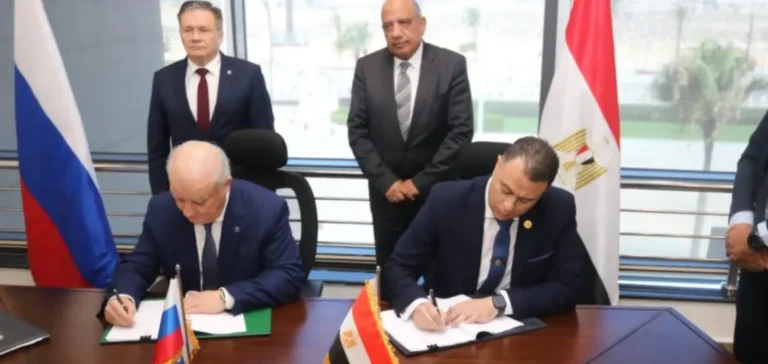Egyptian President Abdel Fattah al-Sisi met with Alexei Likhachev, Director General of Rosatom, to discuss the progress of the El Dabaa nuclear power plant project. This meeting resulted in the signing of an amended protocol to the intergovernmental agreement between Egypt and Russia. The agreement, signed at the Ministry of Electricity and Renewable Energy, covers the design, supply of equipment and materials, as well as the installation and commissioning of a physical protection system for the plant site.
An additional contract concerning engineering, procurement, and construction works for the plant was also signed. Andrey Petrov, President of Atomstroyexport, and Sharif Helmy, Chairman of the Nuclear Power Plants Authority of Egypt, formalized this crucial step. Rosatom clarified that modern security systems will be installed at the site, in compliance with the International Atomic Energy Agency (IAEA) standards.
Progress and strengthened cooperation
Alexei Likhachev highlighted the strategic importance of the El Dabaa plant, emphasizing that the construction of the plant is a priority for Rosatom. He noted that works are progressing simultaneously on the four production units, with the daily involvement of more than 24,000 people, the majority of whom are Egyptians. This project is thus seen as a catalyst for the development of local skills and the creation of sustainable jobs.
Egyptian Minister of Electricity and Renewable Energy, Mahmoud Esmat, stated that the signing of this protocol represents an important step in the framework of Egypt’s 2040 energy strategy. This strategy aims to diversify the country’s energy sources and strengthen the use of clean electricity, thus contributing to a sustainable energy transition.
A key project for Egypt’s energy future
Located 320 kilometers northwest of Cairo, the El Dabaa plant will be the country’s first nuclear power plant and the first in Africa since Koeberg in South Africa. It will consist of four VVER-1200 reactors, models already in use in Russia and Belarus. The first units of the plant are expected to be commissioned by 2030, as part of a goal to produce 9% of Egypt’s electricity from nuclear energy. This project aims to reduce Egypt’s reliance on oil and gas, while supporting the country’s industrialization.






















